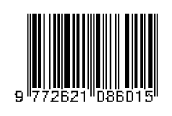Analisis Dampak Covid-19 Terhadap Indeks Harga Konsumen dengan K-Means dan Regresi Berganda
Abstract
The Indonesian economy during the global pandemic entered the brink of economic recession. This problem occurs because the state of public consumption has decreased due to the limited space for community movement and sluggish economic activities due to preventing the transmission of Covid-19. This affects the decline in public consumption in economic activities. In this case, it can be seen from the statistical news published by the official website of the Badan Pusat Statistik (BPS) which reports that the inflation rate in the previous months was around 0.10%, while in April 2020 it decreased by 0.08%. Based on these, a K-means grouping study was conducted by dividing the cluster into 3 parts and modeling using multiple regression methods. In this study, the variable used was the price index. The results of the K-means cluster analysis with the division of 3 clusters, namely cluster 3 (high CPI cluster) consisting of 66 cities, cluster 1 (moderate CPI cluster) consisting of 2 cities, and cluster 2 (low CPI cluster) consisting of 22 cities. Furthermore, the multiple regression results obtained 12 variables that have a significant effect on the Consumer Price Index (CPI). The results of regression modeling are the highest coefficient is food at 0.236 and the lowest coefficients are cigarettes and tobacco at 0.008. Therefore can be concluded that the grouping of the CPI indicator obtained 75% of cities with high index prices, especially in big cities such that economic activity, in general, was still consumptive during the pandemic and multiple regression modeling resulted from 37 indicator variables, only 12 indicator variables had a significant effect on the CPI.
Keywords: k-means, CPI, multiple regression, and price indexFull Text:
PDFReferences
Badan Pusat Statistik. Indikator Ekonomi April 2020. Jakarta. BPS RI. 2020.
Syahyuti. Indeks Harga Konsumen. URL : http://syahyutivariabel.blogspot.co.id/ 2011/03/indeks-hargakonsumen.html, diakses pada 27 September 2020.
Khan, M. dan Senhadji, A. Threshold Effect in Relationship Between Inflation and Growth. IMF Working Paper. 2000.
Bank Indonesia. URL: http://www.bi.go.id/id/moneter/inflasi/pengenalan/Contents/ Pentingnya.aspx, diakses pada 15 Oktober 2020.
Sinaga, M. D., Windarto P. A., Hartama, D., dan Saifullah. Pengelompokan Indeks Harga Konsumen Menurut Kota dengan Data Mining Clustering. Prosiding Seminar Nasional Sains & Teknologi Informasi (SENSASI). Pematangsiantar, Indonesia. 328-336. 2019.
Kementerian Perdagangan. Laporan Akhir Analisis Kebijakan Pemerintah terhadap Inflasi dan Kemiskinan. 2015.
Lindley, D. V. Regression and Correlation Analysis. Journal of New Palgrave : A Dictionary of Economics. London. 1987.
Montgomery, D. and Peck, E. Introduction to Linear Regression Analysis. John Wiley & Sons Inc. New York. 2006.
Satriyanto, E. Kombinasi Algoritma Agglomerative Clustering dan K-means untuk Segementasi Pengunjung Website. Skripsi. Universitas Telkom. 2011.
Malik, A. and Tuckfield, B. Applied Unsupervised Learning with R. Packt Publishing. University of Birmingham. United Kingdom. 2019.
Sukarhat, G. Analisis dan Implementasi Algoritma K-means pada Clustering. Skripsi. Universitas Telkom. 2011.
Aicher, C. and Emily, B. Scalable Clustering of Correlated Time Series using Expectation Propagation. Journal Semantic Scholar. University of Washington. 2016.
Refbacks
- There are currently no refbacks.


.jpg)







